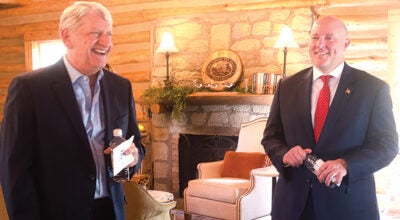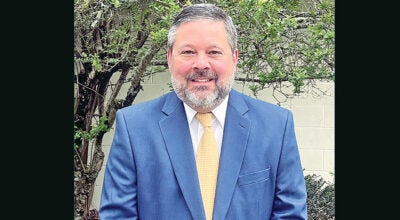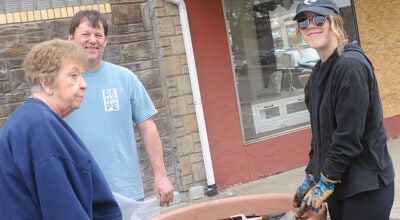Vet makes rounds checking on welfare of animals
Published 10:22 am Friday, July 17, 2009
ROME TOWNSHIP — As the highlight of this year’s Lawrence County Fair nears with the auction on Saturday, that morning will be the last time for Dr. Mike Dyer to make rounds on the 400 animals that have been quartered at the fairgrounds.
It’s all part of being the official vet for the fair, a job Dyer says he has found rewarding.
Dyer, who has a small-animal practice at the Proctorville Animal Clinic, took over last year as the fair vet with the retirement of long-time vet and fair supporter, Dr. Mary Toothman, who held the post for approximately 30 years.
Dyer started his fair duties on Sunday when the animals were brought in for weighing. There he did his initial visual inspection of all the animals.
“If I see any signs of illness, lethargy, staggering, respiratory,” Dyer said. “(If so) we would pursue that and isolate it from the others. Any sickness or contagious disease, public health concern as well as animal health. We don’t want anything on the fairground that is a communicable disease.”
Should an animal become seriously ill with a life-threatening condition, it is also the vet’s responsibility to put the animal down humanely.
Dyer makes rounds three times a day, starting at 6 a.m. and is on call throughout the week for emergencies.
“Anytime an owner has a medical problem, they find me,” he said.
Dyer, who grew up in essence a “city kid” in Huntington, W.Va., admits he became an enthusiastic advocate of farm life as he was studying for his master’s degree in animal science from The Ohio State University.
That was the precursor to his studying veterinary medicine, also at OSU.
“I fell in love with agricultural and animal production interested me,” Dyer said.
He started his career at the Ashland (Ky.) Animal Clinic, before moving his practice to Proctorville. Although he originally worked with large animals, he currently specializes in small animals alone. However, he does take emergency calls on large animals.
But Dyer’s duties don’t end when the fair ends. He works throughout the year with the 4-H teens lecturing them on the quality assurance classes they must take, teaching them such things as the proper way to give injections to their animals.
This summer Dyer did double duty as fair vet and proud father as both his children showed animals: Naaman, 14, entered the feeder calf show and daughter, Ann-Michael, 11, showed two goats.
“The whole mission of 4-H is they learn where their food source is. … that the animal has to be well-cared for, no suffering or stress,” Dyer said. “When you are community-minded, to see the kids enjoy something that gives them fun and teaches them responsibility.”





